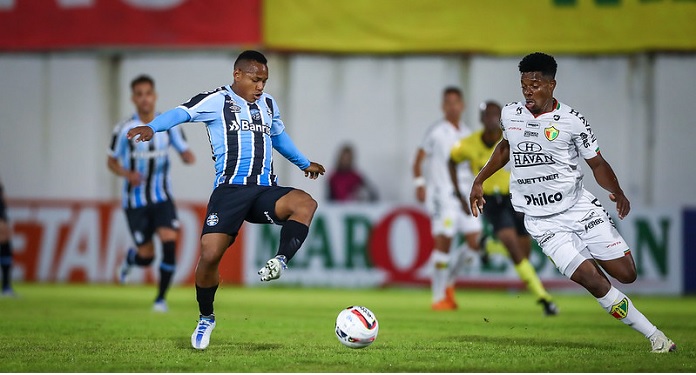In November 2022, during a game between Grêmio x Brusque, in Série B of the Brazilian Championship, a fan made a bet of BRL 2,201, with the ratio of 2.37, that is, if he got the result right, he would receive BRL 5,216.37.
Grêmio won 3-0 and, with that, the player expected to receive R$ 5,216.37. However, the amount was not deposited. He contacted the bookmaker, who claimed that, in fact, the player would only win if none of the chosen scores happened and, together with that, both teams scored or the match ended with more than 2.5 goals.
The fan from the capital disagreed with the result released by a company in the field and asked for compensation, claiming that the platform acted in bad faith. However, the gambler’s request was denied by the Justice, which considered that “games of chance […] cannot be legally charged”. The decision was released on Wednesday, 24, by the TJMG (Minas Gerais Court of Justice).
According to the judge: “Gambling, in view of the illegality of its object, is incapable of forming legal transactions, does not generate valid obligations for any of the parties and, as such, cannot be legally charged. Consequently, they generate only moral duties, those that must be fulfilled voluntarily by the mere sense of honesty, since they are not legally enforceable”.
The bettor’s defense stated in the process that, “according to the conditions of the bet, it could not give the results: 2×0, 1×0, 0x0, 0x1”. The match ended in 3-0 for Grêmio. For that reason, the fan believed to have won the prize.
The fan then decided to go to court, claiming that the company acted in bad faith and that “the information was lacking in clarity” released by the platform. He asked for compensation of R$ 14,197.80.
The judge also cited an excerpt from the Civil Code which states that “gambling or betting debts do not require payment” and that losses can only be claimed if the bettor is a minor or has been banned.
The request was denied by the Justice, which understood that sports betting has no legal relationship. According to Judge Sérgio Castro da Cunha Peixoto, from the Special Civil Court of BH, games of chance are incapable of forming legal transactions and cannot be legally charged.





















































